Starting Salaries for Chemistry Graduates: An Overview
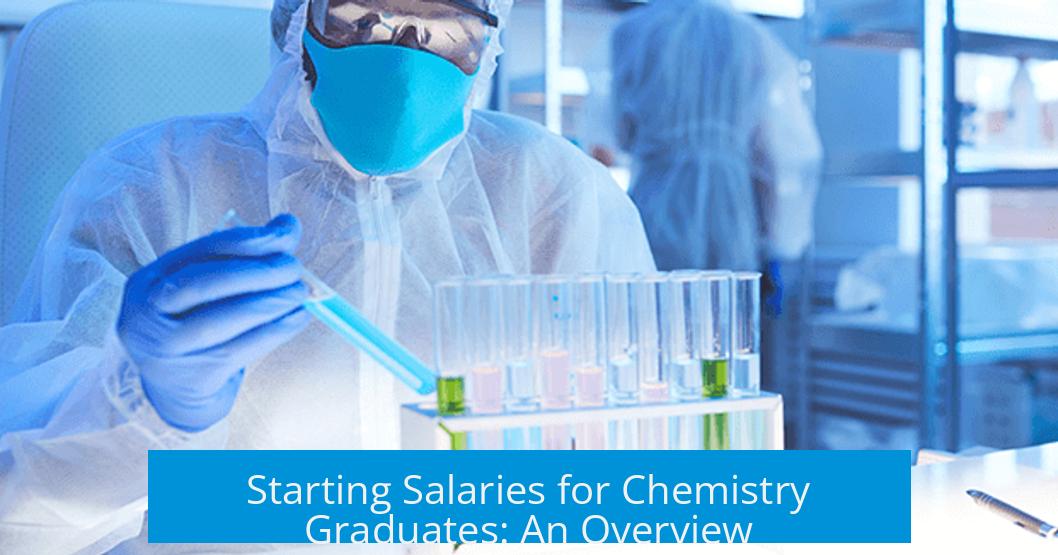
Chemistry graduates’ starting salaries vary widely depending on degree level, location, and job type, ranging from approximately $14.50 per hour to over $65,000 annually. Entry-level wages reflect educational background, industry, and regional economic factors, affecting career trajectories and initial income.
1. Salary by Degree Level
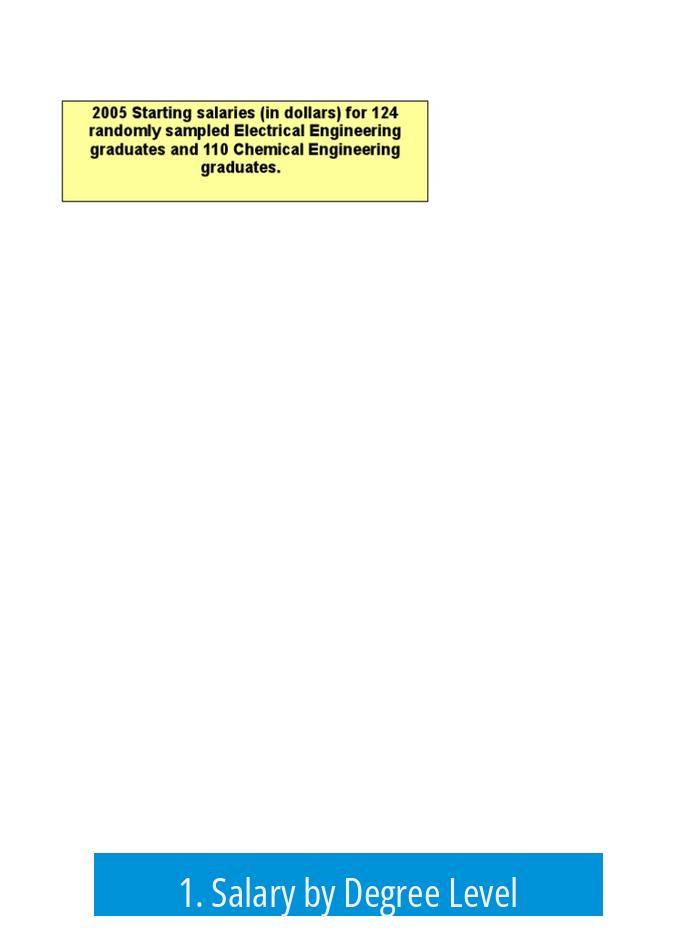
1.1 Bachelor’s Degree
Graduates with a Bachelor’s degree in Chemistry typically earn between $14.50 per hour and $55,000 annually. For example:
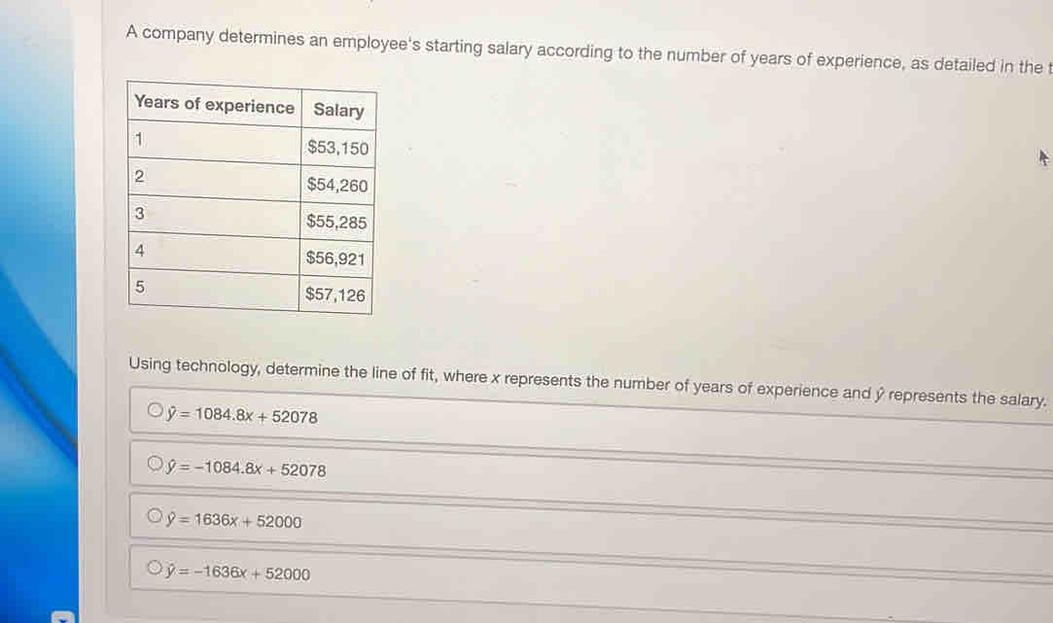
- Laboratory Technicians: Canadian lab techs with a BSc can start at $14.50/hr, while in the US, lab tech salaries range from $15 to $20/hr.
- Research and Development Roles: In the Northeastern US, a BS in Bio/Chem can yield $55,000 annually in research engineering.
- Quality Control (QC) Analysts and Forensic Chemists: QC analysts in the mid-Atlantic US report starting salaries near $41,000.
- Patents and Specialized Roles: Patent examiners with a BS in Chemistry may start around $66,000, often with added signing bonuses.
- Entry-Level Salaries: Some report starting hourly wages as low as $14/hr as temporary lab assistants or techs, with potential for salaried positions around $40,000 to $48,000 after confirmation.
1.2 Master’s Degree
Those holding a master’s degree, such as an MS in Analytical Chemistry, generally see higher starting pay:
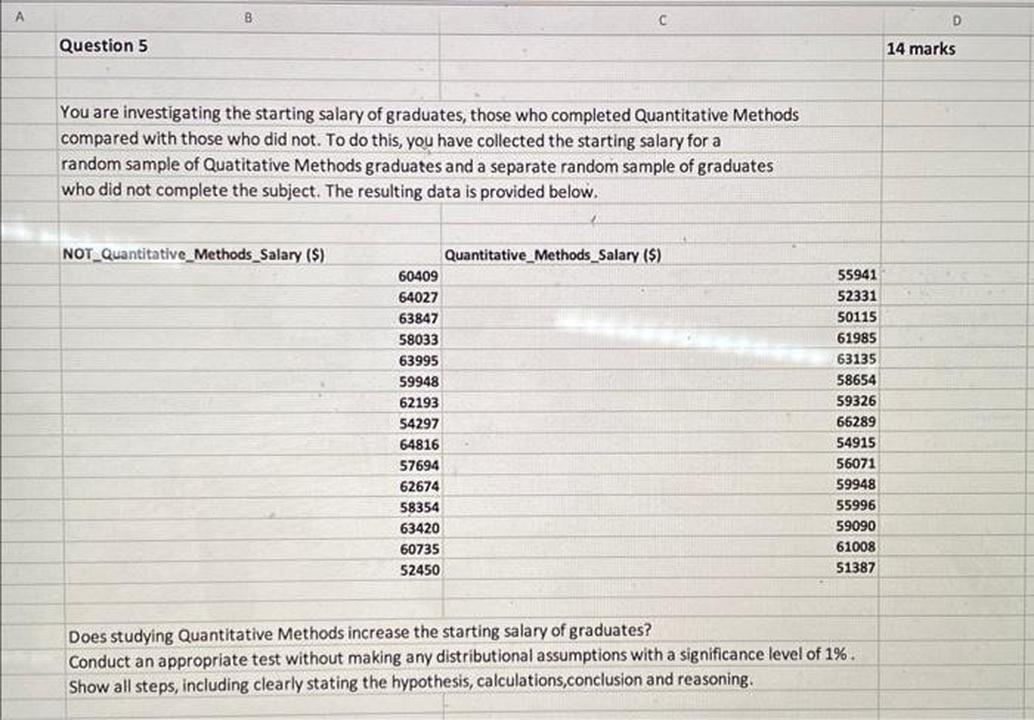
- Hourly rates often begin at $20/hr for temporary contracts, rising to $25/hr after six months, frequently in pharmaceutical R&D in the Midwest US.
1.3 Doctorate (PhD) Level
PhD graduates tend to start with stipends or salaries reflective of advanced skills:
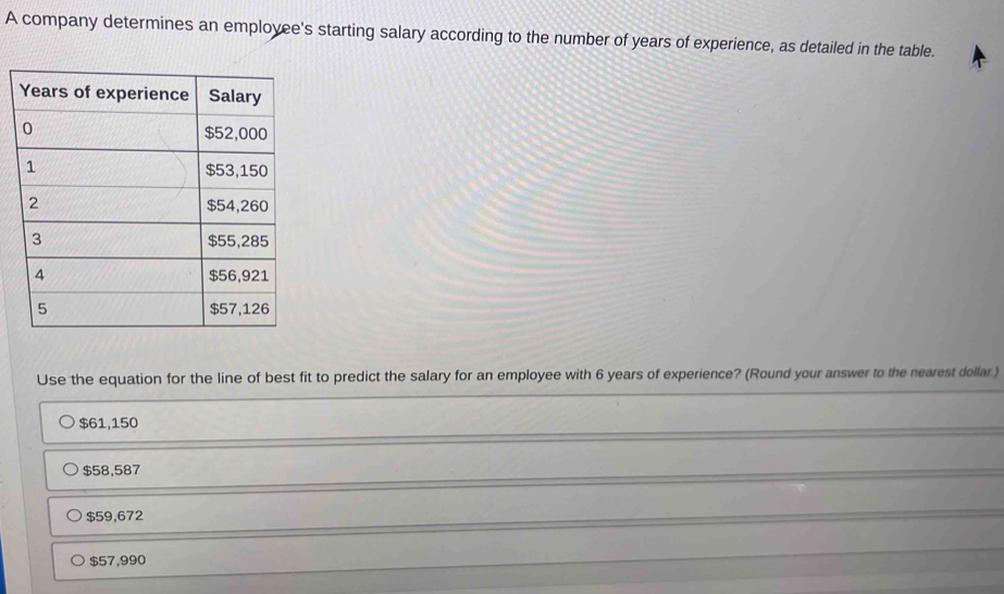
- Graduate students in the US receiving fellowships earn between $28,000 and $33,000 annually.
- Postdoctoral positions typically offer salaries around $65,000, sometimes with full benefits and bonuses.
- Academic PhD salaries range from $58,000 to over $70,000 inclusive of benefits.
- Industry PhDs may start around $65,000 with additional retirement benefits and bonuses based on performance.
2. Regional Variations in Starting Salaries
Geographic location plays a significant role in salary disparities among chemistry graduates.
2.1 Canada
- Starting lab technician wages hover around $14.50 to $18 per hour.
- Technical institute diploma holders in chemical technology may start at $24,000 CAD annually.
- Lab tech roles in research hospitals frequently offer about $18 per hour.
- Chemical engineering technology graduates report hourly wages of approximately $22.50.
2.2 United States
- Bachelor’s degree holders report starting salaries from $39,000 to $55,000 annually.
- Positions span from analytical chemistry roles in food science paying $15/hr plus benefits to research engineering roles offering $55,000.
- Positions in high-cost cities like San Francisco provide hourly pay of $17 to $20 but may not be competitive relative to living expenses.
- PhD hires in contract research organizations may start at $65,000 per year.
2.3 Australia
- Lab technicians earn $20 to $25 AUD per hour.
- A double degree in Science/Nanotechnology may provide starting salaries near $56,000 AUD annually.
2.4 United Kingdom
- Quality Control roles might pay approximately £50 per day for recent BSc graduates.
3. Common Job Titles and Corresponding Salaries
| Job Title | Typical Starting Salary | Notes |
|---|---|---|
| Lab Technician / Assistant | $14.50 – $20/hr | Entry-level roles, often temporary contracts or early career positions |
| Research Associate / Analyst | $41,000 – $55,000/year | Includes QC analysts, research engineers in food science or pharmaceuticals |
| Patent Examiner | $66,000/year + signing bonus | Specialized government or corporate roles with benefits |
| Project Coordinator | $20/hr | Non-laboratory analytical or coordination positions |
4. Salary Progression and Career Development
Many chemistry graduates experience salary increases within 1–2 years. Examples include:
- Hourly wages rising from $14.50 to promotions within under a year.
- Increased salaries from temporary hourly wage of $16 to full-time annual salaries above $43,000.
- Contractor rates moving from $20/hr to $25/hr within six months.
- Annual salaries advancing from $39,000 to over $46,000 in the first couple of years.
5. Market Realities and Job Search Challenges
Market conditions affect salary offers and employment opportunities. Key factors include:
- High unemployment and economic downturns can lengthen job searches.
- High cost of living regions may offer wages that feel inadequate compared to expenses.
- Positions requiring specific experience or skills can pay more, influencing graduate decisions to pursue advanced degrees or alternative career paths.
Many express mixed feelings about starting salaries, acknowledging the value of experience despite lower initial pay. For some, transitioning into business or management or pursuing graduate studies is a response to limited creative or financial prospects.
6. Resources for Salary Information
- 2013 ACS Starting Salary Survey
- ACS members can access the ACS Salary Comparator for personalized salary data.
- Payscale.com offers salary expectations by job title and location.
Key Takeaways
- Starting salaries for chemistry graduates vary widely by degree, job type, and location.
- Bachelor’s degree entry-level salaries typically range from $14.50/hr to $55,000/year, with higher rates in research or patent roles.
- Master’s degree holders often start at $20-$25/hr; PhD graduates begin with stipends of $28,000-$33,000 or salaries around $65,000.
- Regional differences are significant, with Canada and Australia offering hourly wages, and US salaries often paid annually.
- Salary progression within the first few years can be substantial, reflecting gained experience.
- Economic conditions impact job availability and salaries; some graduates pivot careers to seek better compensation or opportunities.
/r/chemistry, what was your starting salary out of college?
What exactly do chemistry graduates make fresh out of college? The answer spins a wide spectrum from around $14.50/hr in lab tech roles to well over $65,000 annually for PhD holders in specialized research positions. Let’s unpack this in detail, diving into degrees, locations, roles, and those inevitable “I-wish-I-knew-this” salary realities.
So you just tossed your mortarboard and now you’re wondering—what can you expect paycheck-wise as a budding chemist? What’s the reality behind the shiny degrees displayed on your dorm wall or LinkedIn profile? Buckle up, because the numbers might surprise (or educate) you.
Starting Salaries for Chemistry Graduates: Degree Matters
If resumes were superheroes, your degree would be your power source. Whether you waved goodbye to your Bachelor’s, picked up a Master’s, or conquered the PhD beast, your starting salary loosely tracks with your academic achievements.
- Bachelor’s degree holders usually kick off their careers as lab technicians, assistants, or analysts earning between $14.50/hour and roughly $55,000 annually.
- Master’s degree graduates land somewhere in the range of $20/hr as contractors, sometimes moving up to $25/hr—particularly in pharmaceutical R&D projects.
- PhDs, whether grad students or postdocs in academia or industry, see stipends starting at about $28,000 a year, scaling up to $70,000+ as they take on full-time roles.
Let’s roll up our sleeves and examine these layers in real-world context.
Lab Technicians and Assistants: The Ground Floor
Early chemistry jobs tend to share one trait: getting your boots dirty working as a lab tech or assistant. In Canada, many graduates report starting at about $14.50/hour. One Canadian with a lab tech Bachelor’s job confessed, “Despite the low wage, the experience is *really* valuable,” and bonus—after less than a year, they were up for a promotion.
Over in the US, a Bachelor’s graduate working in microbiology began as a temp lab assistant at $16/hour, then got bumped to around $43,000 annually after a year—they call that climbing the ladder. Another person in North Carolina started at $14/hr as a lab tech for six months, then scored a permanent job at $48,000 salary. It’s the classic “start low, hope to grow” scenario.
When benefits enter the mix, things get a bit sweeter. Analytical chem techs in food science pull in around $15/hr plus benefits, which make the package more competitive.
Special Roles and Their Premiums
Not all chemistry jobs are created equal. Research engineers, patent examiners, and oil & gas R&D specialists tend to start higher.
- A research engineer with a BS in Bio/Chem in the Northeastern US reports first-year pay at $55,000.
- B.S. Chemistry grads working as patent examiners start around $66,000 with a $20,000 signing bonus. Yes, you read that right: a signing bonus. That’s like the employer saying, “We really want you. Please don’t bring up that one little accident in the lab.”
- Oil and Gas R&D in Houston, TX starts as a $19/hour contractor gig, moving quickly to $58,000 full-time plus a 10% performance-based bonus.
Meanwhile, project coordinators in vitamin manufacturing get about $20/hour, mostly analyzing data rather than mixing chemicals. It’s a sign of how diverse—and strangely versatile—a chemistry degree can be.
Master’s and PhD Graduates: The Higher Upscale
Master’s grads generally find contracts in pharmaceutical R&D at $20-$25/hour. Those without benefits may feel the pinch, but the experience often pays dividends later.
PhD holders encounter an interesting world. Graduate students funded by fellowships typically earn stipends between $28,000 and $33,000. Postdocs can expect about $65,000 yearly — equivalent to a solid mid-career salary for many.
Once in full-time academia or elite industry roles, PhDs land salaries from $58,000 to $70,000+, with benefits, bonuses, and 401(k) matches sweetening the deal. For example, a PhD in analytical chemistry hired by a contract research organization in the US Midwest reported a $65,000 starting salary, full benefits, and bonuses.
But it’s not all champagne and lab coats. One PhD commented, “*I’d love to hear input even if you think I’m stupid to ask for $75k with a PhD.*” The tug-of-war between expected salary and real-world offers can be very real.
Location, Location, Location
Pour some volatile solvent on this—salary differences depend heavily on geography.
| Region | Typical Entry Salary | Examples |
|---|---|---|
| Canada | $14.50/hr to $24,000/year | Lab tech positions from $14.50/hr, chemical tech diplomas at $24k/year, mainly in research hospitals and labs. |
| United States | $14/hr – $58,000+ | Range from $14/hr lab techs to $58k+ for full-time R&D, patent examiners at $66k, and research engineers at $55k. |
| Australia | $20/hr – $56k AUD | Lab techs start at $20/hr, with roles like radiochemists earning around $56k AUD (~$17.50/hr). |
| UK | £50/day (QC shifts) | Quality Control workers earning roughly £50 per day post-medical chemistry degree. |
Cost of living plays a role, too. San Francisco techs, for instance, might pull $17-$20/hr but struggle with housing costs. One biochemist temping there mentioned starting at $17/hr, moving to $20.35/hr after a year. Improvement, but the Bay Area wallet is a tough beast.
Salary Progressions: Is There a Career Ladder or a Cliff?
Hard work can sometimes pay off fast. Some newcomers report rapid promotions. For example, a lab tech starting at $14.50/hr became a promotion candidate within a year. Another jumped from temp lab assistant at $16/hr to a full-time $43,000 salary position in a year. One chemistry graduate saw their salary rise from $39k to over $46k, despite a humorous gripe about missing six cents in the annual raise.
Others note that patience is essential. Temporary contractors can get raises after six months—from $20/hr to $25/hr, for instance—before benefits and full-time status kick in.
Job Market Realities and Salary Perceptions
It’s not sunshine and unicorns all the way. One lab technician bluntly said, “So many regrets… at $14.50/hr in food manufacturing,” a sentiment hinting at frustration. Meanwhile, others kick themselves for avoiding their original degree which could have led to $80k+ a year jobs.
Job hunting can take time. Several grads said it took over a year and half to land chemistry-relevant jobs due to market conditions, including the shadow of the Great Recession. Impatient job seekers note the long call backs and rejection cycles—sounds like a lesson in endurance, not chemistry.
Does the chemistry field support creativity? Some say no. One graduate with a BS noted it’s mostly SOPs, not “lots of creativity,” suggesting many entry roles involve routine QC tasks, which some find relaxing and others tedious.
Tools and Resources to Navigate Your Chemistry Salary
Want to get a more precise idea for your unique situation? The American Chemical Society has useful tools:
- The 2013 ACS Starting Salary Survey
- ACS Salary Comparator for members
- Payscale.com provides customizable salary expectations by job and location
Using these can prevent nasty surprises and help you negotiate like a pro.
Considering Not To Be a Chemist? Some Non-Chemistry Comparisons
Some chemistry grads jump ship to other jobs with better pay or job satisfaction. For example, someone with an electrical engineering background but with chemistry as a hobby pulls down $70k plus $25k bonus as a support engineer.
Others dabble in pharma or vet sales part-time making about $14/hr, weighing the perks of sticking in chemistry versus trying a new route.
Summary Table: What to Expect Right Out of College
| Degree Level | Entry-Level Salary Range | Typical Job & Location |
|---|---|---|
| Bachelor’s | $14.50/hr – $55,000+ | Lab tech, Canada $14.50/hr; Research associate CA $55k; Patent examiner $66k + bonus |
| Master’s | $20/hr – $25/hr (temporary) | Pharmaceutical R&D Midwest, contractor roles |
| PhD | $28,000 stipend to $70,000+ | Grad student stipend US; Postdoc ~$65k; academia $58k-$70k plus benefits |
| Technical Diploma | $24,000/year approx | Chemical technology diploma in Canada, lab tech at research labs |
Final Thoughts
Is chemistry a lucrative field right out of the gate? The evidence says: it depends. Your degree, region, job role, and even your luck affect your starting salary. Entry-level chemistry roles often start with modest pay but offer valuable skill-building and paths to promotion.
So, what should you do if you’re looking at $14.50/hr and wondering if your degree was worth it? Consider this — the vast experience, networks, and doors chemistry can open may well pay off in the medium to long term. Hard work and savvy career moves lead to better salaries and roles.
And remember the fewer regrets you have about not negotiating harder or switching industries early on, the better your peace of mind.
Now, the real question is—what’s your story? How did your starting salary compare, and did your chemistry career meet your expectations? Share your tale or your dream job below.
What is a typical starting salary for a chemistry graduate with a bachelor’s degree?
Starting salaries vary by role and location. Many begin as lab techs earning between $14 and $20 per hour. Entry-level salaried positions often range from $40,000 to $55,000 annually.
How does location affect starting chemistry salaries?
Location impacts pay. For example, Canadian lab technicians report about $14.50 to $18 per hour, while U.S. starting salaries for similar roles run from $40k to $55k yearly. Australia and the UK have their own scales, often reflecting local cost of living.
Do advanced degrees lead to higher starting pay in chemistry?
Yes, master’s holders may start around $20-$25 per hour in contract roles. PhD graduates often secure salaries between $58,000 and $70,000 annually. Postdoctoral positions may pay about $65,000 or more depending on the institution.
Which entry-level chemistry jobs generally pay more?
Research engineer roles and positions in R&D usually offer higher starting salaries, sometimes above $50k. Positions like patent examiners or specialized analysts can start around $60,000 or higher, often with bonuses included.
How quickly can a chemistry graduate expect a salary increase?
Many see raises or promotions within the first year. Temporary roles often convert to salaried positions with pay bumps. Some report increases from $14 per hour to above $20, or from $39k to over $46k within months to a year.



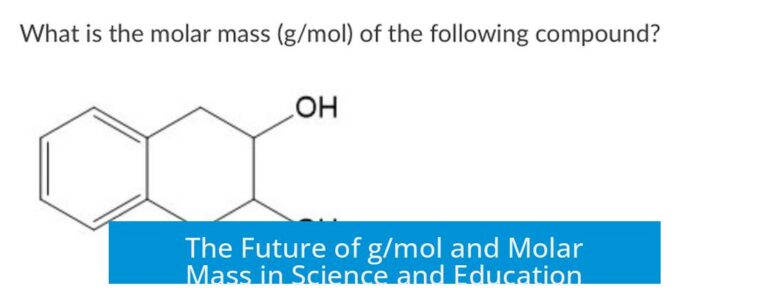
Leave a Comment